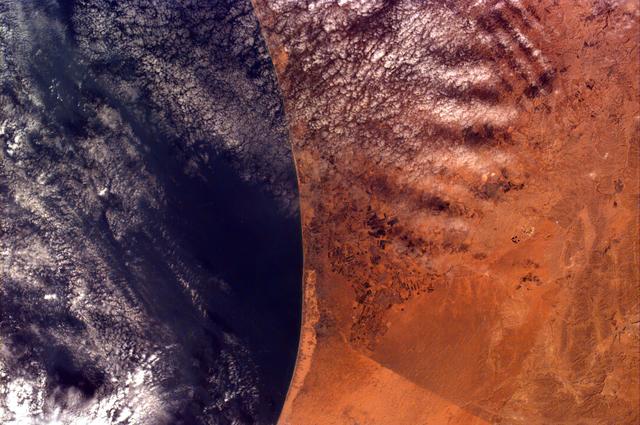( Middle East Monitor ) – The mass killing in Gaza and the onslaught in Sudan are part of a broader global pattern in which civilians are deliberately targeted. Those affected in both places are equally human, yet the world has responded differently. Gaza has prompted widespread global mobilisation, protests, boycotts and statements of solidarity. Meanwhile, the city of El-Fasher in North Darfur has received far less international attention. This contrast raises uncomfortable questions about the unequal recognition of human suffering.
Both places tell a parallel story of civilian loss. In Gaza, airstrikes, artillery fire and ground incursions have destroyed entire urban districts. The United Nations Satellite Centre (UNOSAT) has released repeated satellite imagery showing flattened neighbourhoods, particularly through late 2023 and early 2024, with tens of thousands of buildings damaged or destroyed. Humanitarian agencies have used these assessments to map need and illustrate the scale of devastation. Reports from Human Rights Watch, Amnesty International and independent journalists have documented incidents where civilians were killed in homes, shelters and hospitals. These organisations have stated that many attacks failed to distinguish adequately between military and civilian targets, in violation of international humanitarian law.
In El-Fasher, the violence has taken a different form but with similarly devastating consequences for civilians. The Rapid Support Forces (RSF) and allied groups have been accused by the United Nations and human rights organisations of carrying out targeted killings, including killings that appear to be ethnically motivated. In mid-2024, the UN High Commissioner for Human Rights warned that civilians in Darfur faced “grave and systematic attacks”. The Yale Humanitarian Research Lab, through the Sudan Conflict Observatory, has used satellite imagery to document the destruction of civilian areas, the burning of neighbourhoods, the appearance and expansion of areas consistent with mass burial sites, and repeated damage to medical facilities in and around El-Fasher. Eyewitness accounts gathered by journalists and humanitarian workers who escaped the region support these findings. The patterns of violence are being compared to the mass atrocities witnessed in Darfur two decades ago.
In both Gaza and El-Fasher, women and children are disproportionately affected. In Gaza, UN agencies have reported high child casualty rates and severe disruption to medical services. In Sudan, sexual violence has been documented, including in displacement camps. The World Food Programme and UNICEF have recorded rising child malnutrition in both contexts, as supply routes are cut and humanitarian access is restricted.
The emotional and visual documentation of both crises has been shaped by satellite technology. In Gaza, satellite images show streets and homes reduced to rubble, neighbourhoods turned into grey expanses of debris, and once-recognisable public institutions turned to ruins. In Sudan, the satellite record shows a different kind of evidence: scorched villages, destroyed hospitals, marketplaces burnt out, and areas of newly disturbed earth. When researchers cannot enter a region safely, satellite imagery becomes testimony.
Yet Sudan’s crisis, despite displacing millions and triggering UN warnings of famine and escalating mass killing, has not generated a comparable international mobilisation. There have been statements from global leaders, humanitarian appeals, and occasional media coverage, particularly when reports of mass killings emerge. But the public response has not matched that seen for Gaza. Activists from Sudan have repeatedly spoken of the pain of this silence.
There are reasons for the difference. Gaza has long occupied a central place in global politics and collective memory. Palestinian suffering is widely understood within the context of a decades-long struggle. Advocacy networks around Palestinian rights are well-established and coordinated, while media coverage is constant and intense.
Sudan’s crisis, by contrast, is complex, involving rival military factions, regional power dynamics and layered histories of conflict in Darfur. International media often reduces it to “civil war” or “famine”, without conveying the human stories or political context. This lack of narrative clarity can diminish emotional and political impact.

File. Gaza Strip and the Mediterranean Sea from the Shuttle KidSat Camera. NASA ID: PIA00547
There is also a harder question. Sudanese scholars, journalists and members of the diaspora have pointed to the racial dimension, arguing that violence against Black Africans in Darfur has historically received less sustained global attention. They note that even during the mass atrocities of the early 2000s, activism was limited and often short-lived. Whether or not this is the primary explanation, the perception matters. When people believe their lives are treated as less valuable, psychological harm deepens the physical harm.
Responding equally does not mean collapsing the two crises into one. It means recognising that every civilian life has equal worth. It requires demanding accountability in both contexts and refusing selective empathy. It means holding all armed actors to international law.
An equal response requires supporting independent investigations in both Gaza and Sudan, securing humanitarian access wherever civilians are at risk, and building public movements that do not depend on political convenience or media attention cycles. The responsibility to confront injustice does not begin or end at any particular border.
If humanity is to mean anything, it must mean that a child killed in El-Fasher is mourned with the same urgency as a child killed in Gaza. It must mean refusing to look away—anywhere.
The views expressed in this article belong to the author and do not necessarily reflect the editorial policy of Middle East Monitor or Informed Comment.
Azmat Ali is a student at the School of Language, Literature and Culture Studies, Jawaharlal Nehru University, New Delhi.
 Unless otherwise stated in the article above, this work by Middle East Monitor is licensed under a Creative Commons Attribution-NonCommercial-ShareAlike 4.0 International License.
Unless otherwise stated in the article above, this work by Middle East Monitor is licensed under a Creative Commons Attribution-NonCommercial-ShareAlike 4.0 International License.

 © 2025 All Rights Reserved
© 2025 All Rights Reserved